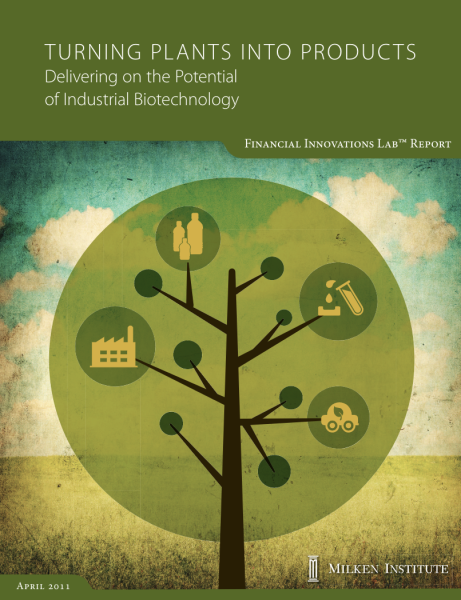
Turning Plants Into Products: Delivering on the Potential of Industrial Biotechnology
As interest in sustainability grows in the United States and around the world, there is a push by policymakers and the industrial biotechnology industry to find replacements for petroleum. This is the case not only in transportation industries but also in the industrial and chemical sectors.
Industrial biotechnology uses such biological resources as plants, algae, marine life, fungi and microorganisms, and biosolids to produce a broad range of products from plastics and chemicals to face creams and detergents. Packaging materials and bottles made from non-petroleum-derived chemicals are already used by Coca-Cola, PepsiCo, and other large companies that have made a commitment to becoming more environmentally friendly. Bioplastics have also proved useful in medical implants and stitches that dissolve. Similarly, compostable mulch films used in agriculture can be left in the fields to biodegrade on their own.
How can the United States facilitate the flow of private capital into the production of bio-based products? To answer that question, a Financial Innovations Lab, developed and funded by the Milken Institute and the Office of Energy Policy and New Uses at the U.S. Department of Agriculture, was convened in July 2010 in Washington, D.C. This event gathered leading scientists and technologists, bio-based product producers, banks, institutional investors, venture capitalists, public officials, and representatives from think tanks and industry associations. Together they identified practical solutions for encouraging investment and helping this fledgling industry mature, building a greener economy in the process.
